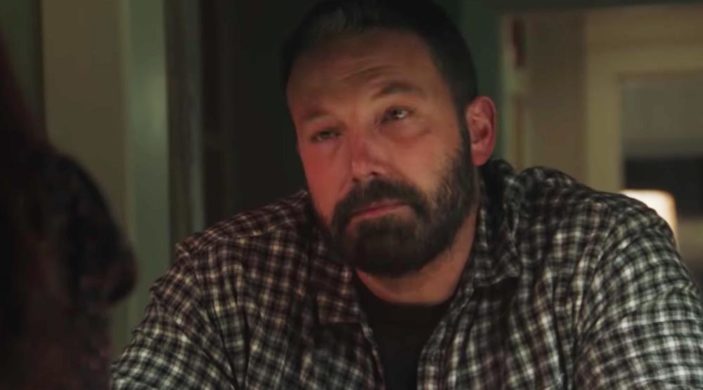
The sports drama formula in cinema has been the most overused and non-innovative formula in cinema lately. Ever since the early 2000s, Walt Disney Pictures have made a long string of films with a fixed formula: inspirational movies about triumphing over adversity that are mostly based on true stories. Despite the critical reception of the films included in that period, the keywords that would pop up a lot are “predictable” and “cliched”.
Over time, the films made less and less money and people were just getting over it. That said, the quality of films have still been quite stellar. Enter filmmaker Gavin O’Connor; a talented filmmaker whose most impressive feats are his unobtrusive and gradual storytelling chops, which accentuates the drama rather than contrive it; and his process of getting the best performances out of his actors.
Case in point: 2020’s The Way Back. A sports drama about a struggling alcoholic who is recruited to be a basketball coach at the high school he used to attend. With a story that can be potentially inspirational and a reunion with lead actor Ben Affleck — who gave one of his best performances in O’Connor’s last film, The Accountant — will The Way Back succeed as a slam dunk?
Affleck stars as Jack Cunningham, a construction worker who is struggling with alcoholism, due to his separation with his ex-girlfriend Angela (Janina Gavankar). Despite the support from his family (including Michaela Watkins playing his sister, Beth), he is stuck in a self-institutionalized box of purgatory. A slog of a routine of work at the site (with discreet drinking including ‘Irishing’ up his coffee) to going to the bar late at night for more drinking and arguing to himself to sleep.
One day, he is called in by the school he attended and asked to be the head coach for the basketball team. While reluctant at first, he accepts the job and slowly motivates the team towards victory. When the team starts to win games; Cunningham starts to gradually feel good about himself and finds the initiative to confront his past and his personal demons.
The story by Brad Ingelsby sounds like it could be ripe with melodrama and contrived acting histrionics. But, O’Connor eschews all of that for subtlety and nuance via a sense of pacing that fits the measured progression of Cunningham’s character arc. In fact, the film makes it quite clear that the basketball segments of the film are peripheral to the characterization of Cunningham, to the point that matches are truncated with score displays.
The musical score by Rob Simonsen is understated. Although O’Connor does use it more than necessary when the actors on-screen could have put in the effort to power the conflicts by themselves. The cinematography by Eduard Grau and the editing by David Rosenbloom capably convey the verisimilitude of the story via handheld and a lack of cutting away from the conflicts. This all helps capture the realism of Cunningham’s turmoil.
The acting from the mostly low-wattage cast are all good; with Gavankar (showing remarkable dramatic chops with very little obvious emoting), Watkins, Al Madrigal and Hayes MacArthur — the last three mentioned are all comedians surprisingly — all hitting their mark. But this is Affleck’s show to reign and he gives what is possibly his most complex performance yet.
Affleck is an actor with a limited range, but he has delivered good work within it. Particularly with the help of acclaimed filmmakers like David Fincher in Gone Girl and Terrence Malick in To the Wonder. In the case of The Way Back (as well as Gone Girl), Affleck was able to harness the public perceptions of himself — in this case, his real-life battle with alcoholism and his divorce from Jennifer Garner — and utilize them in a way that brings an element of gritty realism into his performance. His work is absolutely compelling, convincing and never smacks of overdone histrionics or self-conscious emoting. It, instead, feels like a compliment to Denzel Washington‘s work in the biographical drama, Flight.
As for its flaws, the film is quite predictable in how it all plays out, even if the unraveling of the story is very well done. It also does feel quite repetitive in terms of its plot. Particularly when we see Cunningham sink into many nightly benders, even if it makes sense by design.
The Way Back (not a remake of Peter Weir‘s last film of the same name) is thankfully a great acting showcase for Affleck. It’s also a stellar entry in the sports drama genre. One that manages to rise above its genre trappings to deliver a dramatically satisfying and engaging piece of work. Recommended.
![]()
![]()
![]()
![]()
![]()
THREE AND A HALF STARS (OUT OF FIVE)
The Way Back is showing in cinemas now.
